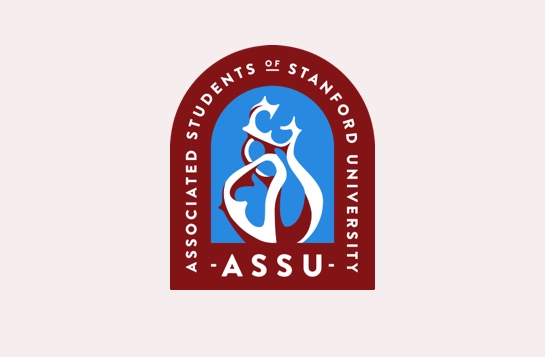Dear Stanford Community,
The ASSU is proud to continue our annual elections, despite the challenges that an entirely virtual environment poses. We encourage everyone to participate, whether by running for a position or by voting. Below, we outline the processes that will take place this year. There are three different processes:
- Candidate elections: Students may run for and vote for positions on the Undergraduate Senate, Graduate Student Council, Class President slates or ASSU Executive.
- Annual grants: Voluntary Student Organizations (VSOs) seeking funding need to gain student approval.
- Referendums: Students may propose legislation to be adopted by the ASSU. The ASSU may also propose legislation.
Why should you participate? The ASSU distributes $2 million annually to various VSOs. Senators and GSC members approve funding requests throughout the year, but this is an important step in keeping student groups well-funded from the start. Your elected representatives will also be working with Stanford administrators and advocating for your interests. As an example, this quarter we have been working to improve the decision-making process for next quarter’s on-campus housing.
This year’s elections will be different, since they will be conducted entirely virtually. Here is some information on the changes we are making:
We are working with the Registrar’s office to relax voter and candidate eligibility as much as possible, in compliance with the ASSU Constitution. Due to the new flex terms and increased need for leaves of absence, there is some confusion as to who can run for office and who can vote this year. Elections are being postponed until spring quarter. We will announce voter eligibility as soon as possible, to provide prospective candidates ample time to determine whether they are running for office.
If you are running for office, filing an annual grant petition or filing a referendum petition, the filing period will be March 10-19. The form and relevant information can be accessed here. If you are a prospective candidate, please read the Candidate Guide. This provides information on all-virtual campaigning.
At the beginning of Week 1 of spring quarter, eligible voters will receive an email containing personalized links to their ballots. Please do not share these links with others. This ballot will be for candidate primaries, annual grant petitions and referendum petitions. This first step was formerly known as the “petitioning period,” and has been changed for clarity. All candidates (except GSC candidates) must go through the primaries. Voters may vote for as many candidates as they would like during the primaries, and in order to advance, candidates must receive a certain number of votes.
This ballot will also contain annual grant petitions. When the ASSU recommends an annual grant amount that differs from the group’s requested amount, the group may file a petition to be placed on this ballot. If the VSO gets at least 15% of the relevant Association population (either graduates or undergraduates), they will proceed to the General Election ballot for approval at the funding amount they requested. If not, they will proceed to the general elections with the amount recommended by the ASSU.
Lastly, the primaries ballot will contain student referendum petitions. In order for referendum petitions to proceed to the general elections, the following criteria must be met:
- Advisory referenda: These refer to initiatives whose purpose is to express an opinion, or to take such symbolic action as may be incidental to the expression of that opinion. These petitions must garner signatures from at least 5% of the relevant Association population.
- General initiatives: To seek the enactment of general legislation, a petition must garner signatures from at least 10% of the relevant Association population. Legislation affecting both graduate and undergraduate populations must gather signatures from 15% of the entire Stanford student body in order to obtain general election ballot access.
- Special election referenda: In order to call a special election on a specific issue, a petition must bear the signatures of at least 15% of the relevant Association population.
At the end of Week 5 of spring quarter, all eligible voters will receive links to their individualized general election ballots through their Stanford email addresses. Please do not share these links. These ballots will be for the general elections, where eligible students will vote for candidates, Annual Grant Approvals and referenda that pass the primaries. The general elections are the final elections of the year, and will determine who is elected into office for the undergraduate Senate, Graduate Student Council (GSC), Class President slates and ASSU Executives. Elections are decided via ranked-choice voting, or multiple choice voting. This ballot will also contain Annual Grant Approvals. If VSO’s are able to get a majority of “yes” votes on the general ballot, they will receive an ASSU Annual Grant for the following year at the amount listed on the ballot. Lastly, this ballot will contain Student Referendum Approvals and ASSU-proposed Referenda. If a majority of the votes cast are “yes” votes for these referenda, then the proposed legislation will be adopted.
For more information, please check out our website. If you have any questions or concerns, please email Edwin.
Best,
Edwin Ong ’23, ASSU Elections Commissioner
Cricket X. Bidleman ’21, ASSU Director of Communications
The Daily is committed to publishing a diversity of op-eds and letters to the editor. We’d love to hear your thoughts. Email letters to the editor to eic ‘at’ stanforddaily.com and op-ed submissions to opinions ‘at’ stanforddaily.com.
